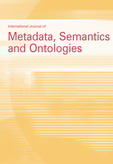Publishing agro-environmental resources as linked data
Abstract
Publishing environmental resources to the linked environmental data requires resource publishers to conform to a set of universally recognised linked data principles. These principles, however, do not consider domain-specific semantics that are crucial for building a semantically unified environmental information space over the linked environmental data. In this paper we present an approach to publishing agro-environmental resources to the linked environmental data that extends the universal linked data principles by taking into account domain semantics of the agro-environmental domain. The approach relies on an underlying environmental resource model and introduces a set of publishing principles that should enable semantic integration of the linked agro-environmental resources. According to the proposed principles this integration happens over time as a result of conjoint acting of the resource providers and resource users. In order to prove feasibility of the approach we developed a supporting software system called AGROPub. In this paper we demonstrate three main use-cases of the system: resource annotation and publishing; resource linking; resource evaluation, on the example of some real-world agro-environmental resources. The processes realised by these three AGROPub use-cases, all together, should enable the full integration of the linked agro-environmental resources into the semantically unified environmental information space.
Download full text in pdf format
 Published as:
Published as:
S. Nesic,
A. E. Rizzoli,
I. N. Athanasiadis,
Publishing agro-environmental resources as linked data,
International Journal of Metadata, Semantics and Ontologies, 7:25-36,
2012, doi:10.1504/ijmso.2012.048507.
You might also enjoy (View all publications)
- Corn yield estimation under extreme climate stress with knowledge-encoded deep learning
- A virtual lab maturity model for guiding the co-development of advanced virtual research environments
- From general to specialized: The need for foundational models in agriculture
